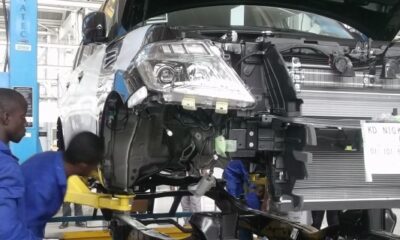“While you have government investing with policy, some of the infrastructure and intellectual property,” he said.
Auto
Cartel frustrating Nigeria’s auto policy – NAMA Executive Director, Olaofe
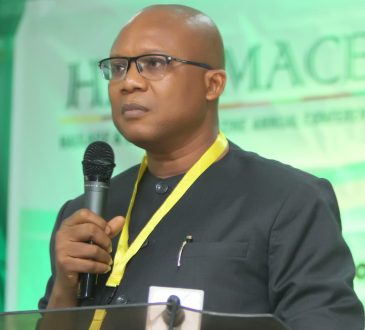
Mr Remi Olaofe is the Executive Director, Nigerian Automotive Manufacturers Association (NAMA). He speaks with the Nigeria Auto Journal’s team on the auto policy, the impediments and how the nation can achieve a viable and sustainable auto industry
What is your view on the failure of President Buhari to sign the Auto Bill and returning it to the National Assembly for review?
I think the issue of Auto Bill has been over-flogged.
Some people don’t even know that we don’t have Auto Bill. This is because some elements of the Auto Bill are already being implemented. For example, it says we would license some assembly plants to encourage them to assemble vehicles in Nigeria; we would give them XYZ concessions. At the onset, they would bring in one Fully Built Unit (FBU) and they would be allowed to bring in this number of Semi Knocked Down (SKD) vehicles. It happened. We would tell Bank of Industry (BoI) to extend some facilities to some of them. Based on the National Automotive Industry Development Plan (NAIDP), such facilities were granted. There would be tax concessions; training facilities, emission centres and all those things.
The National Automotive Design and Development Council (NADDC) did that and those facilities were set up. The government would support the local assemblers and the Vice President, Prof Yemi Osinbajo, gave an Executive Order to support local assembly products. We are all in this country and we are aware that the implementation could be a big question. Of all these things that we have raised, you could have a challenge of implementation. The issue is what exactly do you want to achieve with auto policy? What is delaying our celebrating the auto policy, that is devoid of any disguise? The only thing that is delaying the real auto policy is lack of political power. There must be a commitment by the government. That commitment will only be derived from their appreciation of what that policy seeks to achieve. It does not augur well if we say that we are having an auto policy and all we are doing is just on paper. We must look at the macro implications of the auto policy. Is it just to make some people rich? We import vehicles and figures are being lost. Don’t let anybody deceive you with data because data must be derived from source. But the kind of figures we have from Customs, NADDC, assemblers, importers are quite different. That makes it very difficult for us to work with any figure. But the fact remains that the population of this country is not what anybody globally can take for granted. You can’t discuss Africa without Nigeria. If you now recognise Nigeria as important and we know that volume of business that we are talking about in this automobile industry, I believe it is enough for government to look at it from that perspective and put the necessary infrastructural framework in place for us to have this, which is what I believe auto policy should achieve. We are aware that President Jonathan approved this and the new government moved in. The issue was like that; it was already approved. Now, they said it would move from policy and that it has to be something with a legal backing. How long does it take to put a legal backing to anything? We have been on this. How many times do we even sit in the National Assembly, with the excuse of COVID-19? We don’t see it as a priority issue as far as I am concerned. The government of this country doesn’t see this auto policy as a thing of priority. We seem to continue to enjoy using our own scarce resources to support other economies to thrive, which is unfortunate. When you go into vehicle assembly, the stream of industries is unimaginable and you can’t just put a figure to it; from the person that makes the seat, mirror, steering, windscreen, tyres, brake pads, etc. There are many parts that you have in a single vehicle. What are we doing about it? Nothing. Last year, when the issue of Finance Bill came up, we met with the Minister of Industry, Trade and Investment, Otunba Niyi Adebayo, and he assured us that something would be done about it.
There are allegations that some people are frustrating the auto policy from being fully implemented. Do you share this view?
Absolutely; there a cartel. For every decision taken, there will always be pro and those against it. It favours some and it does not favour others. Some people don’t like it. I will say to you point blank that it is easier to trade than to manufacture. When you bring in your vehicle fully built, all you need is your showroom. You know the cost from the beginning in terms of clearing, duty, keeping it and the profit margin. You can’t do that in manufacturing because there, you have many things to contend with. For example, the personnel issue, raw materials, capital outlay, infrastructure and others. All these will go into assembling of a vehicle. But a vehicle that has already been assembled that you are just bringing in is different. So, will those people be happy with auto policy? The answer is capital no. Interestingly, these people are very strong; they have the wherewithal. Don’t forget that the people importing vehicles before are largely the ones going into vehicle assembly. So when they are having seven, eight, nine, ten lines of vehicles that they import, they are just using one line for the purpose of auto policy to assemble. And the assembly they are doing here is not the high-end of their products. It is the one that requires minimal resources to just test because nobody brings in money to any economy without being sure of the policy that supports and protects their investment. There is bound to be a cartel and we know the role they are playing.
Some auto assemblers are accused of short-changing government using the auto policy window by not paying the right duty on imported vehicles. How do you think this can be addressed?
The cartel we are talking about are not just those bringing in FBU. There is a different market, which is difficult to appraise. They are called the dealers of “Tokunbo” cars but when you see some so called Grade A Tokunbo, there is no difference between them and a brand new car; maybe because they have just done about 50 miles or 100 miles in America and they ship them to the country under various platforms. When those vehicles arrive in this country and when you open their bonnet, everything is intact. Nothing has been touched and some still have the nylon inside. These vehicles are classified as tokunbo cars but they are not. They are brand new vehicles. And that is the most difficult market. These people have guidelines that new vehicles must come into the country through company X. Now what they do in the US is that when they buy a new car, you drive it around to achieve a particular mileage. When you go to the history of that vehicle, you will notice that it was bought, parked and kept for some time and they ship it out. So they are called Tokunbo because it is not coming as brand new vehicles. But when they want to sell them, they don’t price it as Tokunbo. They price them as brand new vehicles because they know they are buying new cars. They are the people we are concerned with. There is no statistics. There is no barrier of entrance.
So we have a major issue as it relates to this category of people. What we could have done is for the government to be decisive. Government can decide to shut its borders to these vehicles. But in doing that, it must put certain infrastructure in place. The transport system must be okay and the assembly plants. You can give them specific models that they can manufacture or assemble. Let’s say 1.2-litre to 1.5-litre cars. And that is where the majority of our population is. How many Nigerians can afford a V8 vehicle? They will be very scanty. They want to have 1.2-litre to 1.6-litre cars. Let them produce these cars. Let the NADDC come up with a Nigerian design which we have asked for. Let them come up with a Nigerian design of vehicle specifying the kind of wheel, tyre and rim so that whoever that is manufacturing the equipment can have the full advantage of economy of scale.
What is your view on the recent slash in import duty on Tokunbo vehicles?
The issue of the Finance Bill is rather unfortunate. We did everything as NAMA working with the NADDC up to the minister’s level to let them know that these things would not address what they claim to address. We engaged a consultant to go out there and bring the take off of that Finance Bill. What was the cost of intra and inter transportation? What does it cost to take a cab from CMS to Orile or to Mile 2? We asked the cost now; in three months and six months after. What was the cost of travelling from here to Abuja and Onitsha prior to the Finance Bill? If the core objective of the Finance Bill is to lower the cost of transportation, has that really materialised? The answer is no. So, it is a failure. If that is the whole idea of reducing duty to bring those vehicles, then it has failed. There are so many variables that interplay for you to agree on what is the cost of transportation – the state of our roads; the cost spare parts; security in the system and the cost of fuelling the vehicles. So what has happened? The cost of transportation remains very high. The reduction in duty of vehicles was very political. It was not properly thought out and it was rushed into. What data informed the decision they took?
What input did NAMA make to the reviewed auto bill after it was returned to the NASS from the President?
Chairman of NAMA is on the board of the NADDC. We have other members representing spare parts and other sectors. When this came up, it gave us the opportunity to listen to some of our members. We tried to find out their agitations and the shortcomings in the earlier arrangement. It was not so significant because when you go through that Auto Bill, there are minimal amendments coming into it; just the addition of some operators not properly captured before like the three-wheelers. We participated in the first draft of the bill and in the review. We were adequately represented via the NADDC platform on the modification that took place.
Is Nigerian auto industry truly ready for the opportunities in the AfCFTA?
We are currently going to be at a loss because we are not ready for it. When it was about to be signed, we suggested through the Manufacturers Association of Nigeria that we should have it on a segment basis. It was expected that some would start immediately and you would give some people two to three years to join. We pushed that time to allow automobile come in, in the second phase. What we had in mind was that the second phase would give us enough room. Unfortunately, we have been static. That would have given us enough room to move from SKD to CKD and let us provide requisite infrastructure like an industrial zone where we can have free trade zone; where we can have automobiles assembled; bring in the OEMs because they are not in yet. So, all these are not going to be to our advantage. In Ghana, people keep saying it. Nigeria is the source of auto bill in Ghana. Auto bill written here, packaged here was taken away by somebody and was taken by a country that knows what it wants to do. And it is already implemented. I know a number of major players in the automobile assembly in this country that are supposed to be in Nigeria but are now in Ghana. So we are creating an automobile hub in Ghana. And Ghana will now assemble vehicles and be shipping to Nigeria.
Nothing will go well without us coming together. A house that is divided cannot stand. The Nigerian auto assemblers need to come together. NAMA is supposed to be the platform to achieve that. But we understand that majority of them prefer to go their way. So, when everybody chooses to go individually to fight a course, they end up being taken advantage of. We are not speaking the same language. The voice lacks unity. And when the voice lacks unity, it will equally lack effectiveness. This is the core challenge we are facing. I sincerely pray that NAMA will come up to this realisation to occupy its rightful place and the members will see the need for them to play what they are supposed to play towards getting these things done.
-Nigeria Auto Journal, 2021.
Auto
CNG conversion centres now 170, FG targets 200 Dec 31
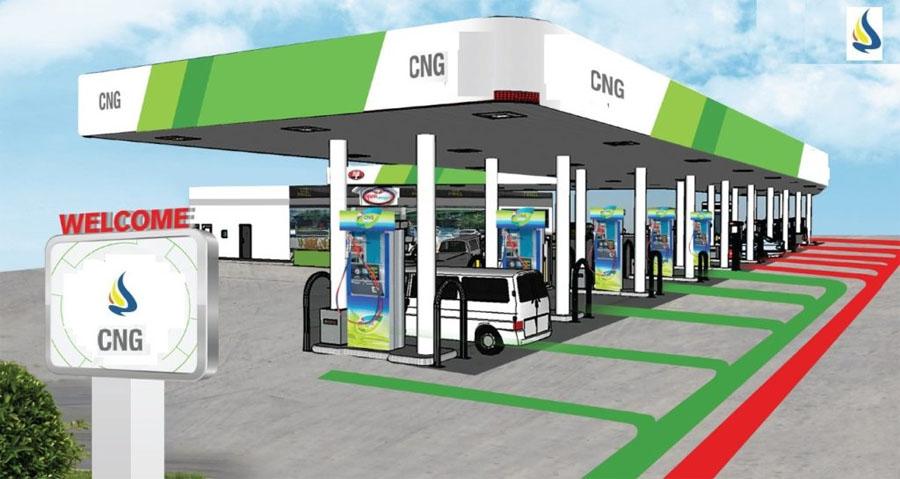
CNG conversion centres now 170, FG targets 200 Dec 31
The Presidential Compressed Natural Gas Initiative (P-CNGI) on Wednesday announced that the CNG conversion centres in the country are now 170.
It was upbeat that the 170 CNG conversion centres in Nigeria would increase to 200 at the end of December 2024.
The centres hit 170 with the commissioning of Portland Gas Conversion centres in Kado, Abuja.
Speaking with reporters, the PCNGI Chief Executive, Engr. Michael Oluwagbemi, said the P-CNGI which has doubled its target for 2024, is hopeful of hitting 500 conversion centres next year.
His words: “Before the end of this year, I promise in the next two weeks, we will get to 200. We are already looking for and certifying at least an additional 35 to 40 on our record.
“I believe we will get to 40 at the end of this year. And that is double our target. You remember this time last year, I told you our target was 100 and now 200.
“Next year, we have set a target of 500 for us and I believe we will blow.”
He recalled that from the seven conversion centres of 2023, there are now 170 centres in Nigeria.
According to him, all the conversion centres are owned by private-sector investors.
“We went from seven conventional centres, that with these now, I easily would say we are around 170.
“So today, from seven to 170, there is not a single one of those that were built by the Federal Government of Nigeria,” he said.
He urged Portland Gas Limited to increase its working hours from 24 to the present 24 hours.
Meanwhile, the Portland Gas Limited, Chief Executive Officer, Engr. Folajimi Mohammed said the workshop which opens 12 hours daily, can convert a car within one hour.
READ ALSO:
- NAFDAC destroys N5bn fake, expired products in Aba
- Speaker Abbas to Tinubu: Your reforms have disrupted status quo
- Abuja demolition: Soldiers attack FCTA officials, seize vehicles
He said it is a full state-of-the-art centre, comprising the mechanical, electrical, calibration, and of course which cannot be done without gas.
He said: “So what we do here is a Turkey solution, where from the conversion part of it, you can make sure that when you leave here within an hour, thereabouts, you are able to make sure that you have a fully converted CNG car.
“And when I mean fully converted CNG car, I mean, it is still a hybrid. You can have the option to switch from petrol to gas where you want to.”
According to him, the tanks that are presently installed in the vehicles are durable for 20 years.
He said since the infrastructure is limited in the country, it is advisable to convert the vehicles in a manner they can use other fuels in addition to CNG.
Mohammed said, “We know the gas infrastructure is just about to improve. “Well, for now, what we have, the limited availability of the infrastructure, by making sure that you don’t do 100% conversion. I can always switch to petrol in the event of any emergencies.”
He said being methane, the gas is very safe as it is lighter than air.
Besides, Oluwagbemi said a free interstate transportation will be provided in the Federal Capital Territory between during the Yuletide.
According to him, six buses will be added to the fleet.
He said, “You know in Abuja today we have 16 buses running Gwagwalada to Keffi and Nyanya as well as in Nigeria that project is already ongoing and it will be expanded to interstate this week.
“We are going to put additional six buses to run interstate here in Abuja and neighbouring cities. We are just providing free transportation programme during the yuletide period.”
Speaking, the National Agency for Science and Engineering Infrastructure (NASENI) Executive Vice Chairman, Khalil Suleiman Halilu recalled that the CNG journey started a long time ago.
He added that the CNG of Portland is a first of its kind in terms of partnership and private sector.
He said in the partnership, the government provides the policy, infrastructure, and intellectual property.
Auto
Coscharis, Toyota, Globe, Weststar, CFAO, others that win big at NAJA Auto Awards
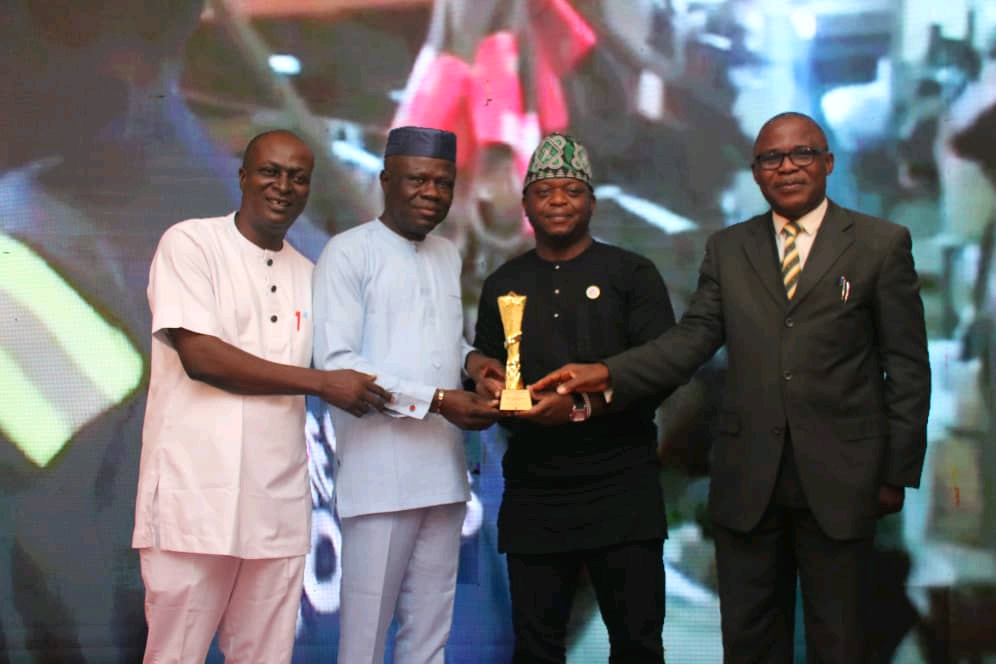
Coscharis, Toyota, Globe, Weststar, CFAO, others that win big at NAJA Auto Awards
Globe Motors, Coscharis Motors, Toyota Nigeria, CFAO, Weststar Associates and Lanre Shittu (LSM) are among big winners at the 2024 NAJA (Nigerian Automotive Journalists Association) Auto Awards.
The prestigious event, which held on Wednesday December 11 at Oriental Hotel, Victoria Island, Lagos recognized various categories within the industry, ranging from vehicle innovation to service excellence.
As earlier announced Mikano Motors’ Changan CS55 beat Toyota Corolla and Kia Rio to win the coveted 2024 car-of-the-year prize.
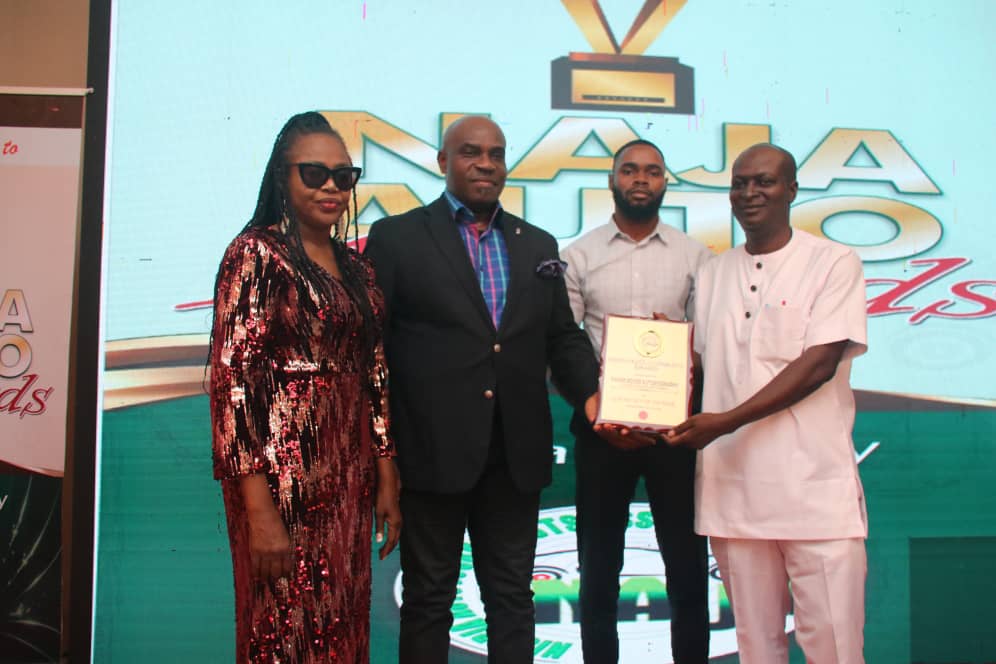
Globe Motors emerged as the Most Resilient Company of the Year, while Coscharis Motors bagged the Multi-Luxury Brand of the Year along with the luxury SUV of the year with Range Rover Autobiography. Toyota Nigeria Limited (TNL) and MD/CEO of Lanre Shittu Motors (LSM) were honoured as Auto Company of the Decade and Auto Personality of the Year respectively.
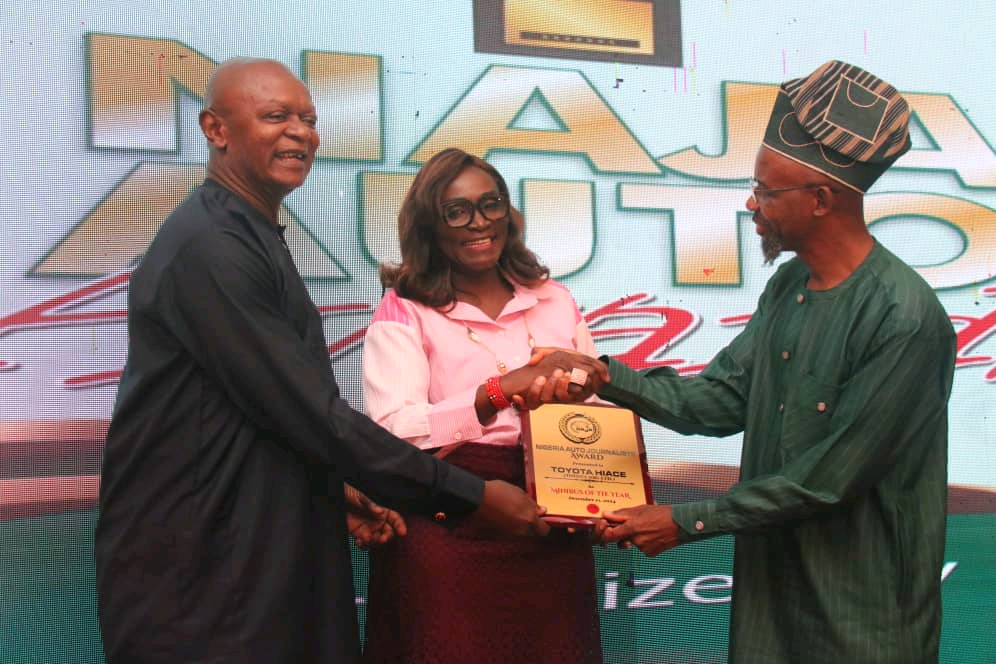
Also, CFAO won the Outstanding After-Sale Service, Product Launches of the Year with the Toyota Land Cruiser Prado and Suzuki Vitara, and the Most Enterprising Auto Company, while Chief Chidi Anyaegbu MFR (Founder, Chisco Motors) was recognized as the Transport icon of the Year; Mrs. Karima Okunola of Mikano Motors bagged the Auto Marketing Manager of the Year.
The companies were lauded for their commitment to providing quality vehicles and top-notch aftersales services, which have contributed to their solid reputation in the Nigerian auto market over the years.
Other notable winners included Innoson Vehicle Manufacturing, which was celebrated for its pioneering role in local vehicle production; Nord took home CNG-powered mini bus brand, and A9 launch recognition.
Weststar’s Mercedes-Benz was declared luxury brand of the year and the S-Class won luxury car of the year.
Carloha with its handling of Chery was adjudged the most innovative company of the year, just as the Chery Tiggo 8 Pro launch received a recognition.
While Dangote Sinotruk won the heavy duty truck manufacturer of the year, Lanre Shittu’s JAC was again awarded the heavy duty truck of the year. Taiwo Shittu, MD of the LSM emerged Auto Personality of the Year. His later father and founder of the company received a posthumous award.
RT Briscoe bagged the workshop of the year award; Dana Motors’ Kia Sonet won the best compact SUV prize, and the mini bus assembler of the year went to Jet System.
In his speech, Chairman of NAJA, Mike Ochonma, said, “This year’s NAJA Auto Awards highlights not just the achievements of the big names in the industry, but also the rising stars who are shaping the future of Nigeria’s automotive landscape.”
Auto
Nigeria’s auto industry in limbo over policy delay – LCCI sectoral head
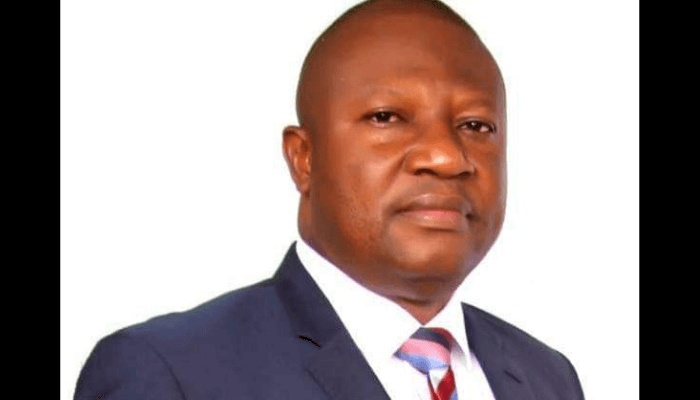
Nigeria’s auto industry in limbo over policy delay – LCCI sectoral head
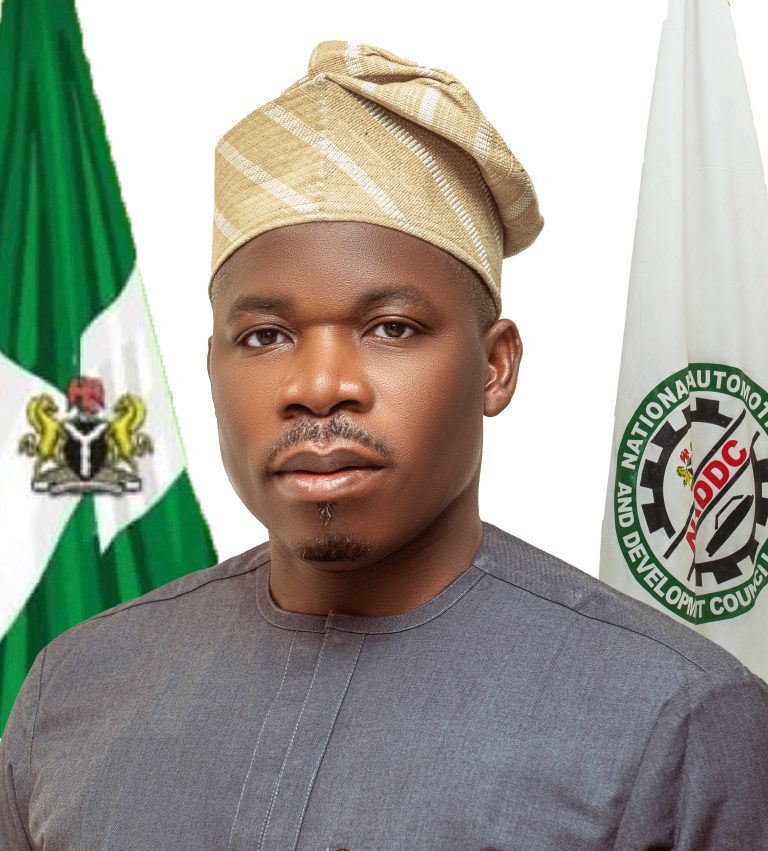
Nigeria’s automotive industry is in limbo due to prolonged delay in enacting the required law to give investors the right direction.
Head of the Auto Sectoral Group of the Lagos Chamber of Commerce and Industry (LCCI), Mr. Kunle Jaiyesinmi, stated this, noting that the industry was being allowed to stagnate, making it difficult to galvanise the overall development of the Nigerian economy
Jaiyesinmi who is Deputy Managing Director of CFAO Motors, spoke in Lagos on the sidelines of the 2024 Nigeria Auto Industry Awards organised by the Nigeria Auto Journalists Association (NAJA).
He said, “For now, we are in limbo. We don’t know what is happening to the (auto industry) policy; whether it’s with the Executive or it has gone to the National Assembly. We don’t have information on the stage that the policy is. I think NADDC is coming up with a stakeholders’ meeting maybe they would give us a very detailed information on the policy.”
In his assessment of the performance of the business this year, he lamented that the macroeconomic challenges including the high exchange rates and inflation were adversely affecting vehicle salesmmm
He said, “2024 has provided a topsy-turvy ride looking at the state of the economy. The purchasing power has been so much eroded (due to) the depreciation of the naira (the exchange rate).
“Prices have risen to a level that most private consumers cannot really afford it (new car). You notice that the major corporates are really suffering. You can imagine how much they lost in terms of exchange rate.
“So that has really impacted the procurement of new vehicles… We have more of automobile maintenance service rather than new sales.
“If you look at the market figure, it has so much reduced compared to what we had been having when the exchange rate was around N450, N480. So it’s not been a very good year for automobile business.
Jaiyesinmi also spoke on the high interest, which is over 33%; as well the recently announced government-back N20 billion auto finance.
He said, “Automobile loan is a no-go area for consumers. It’s a bit tough now. Reliance is on government now and it’s not everybody that can do government business.
“We are just looking at 2025 to be a better year going by the appreciation of the naira in recent times. We are just praying that it can be sustained. If we are able to get that into the new year maybe vehicle prices would reduce and based on the government providing very good enabling environment for businesses to thrive.”
Speaking on the N20bn auto finance scheme by the credit corporation (CreditCorp), he said, “The N20bn scheme is even belated because when the Auto Policy started about 10 years ago, the 35 per cent tariff being charged on fully built vehicles, the understanding we had then was that part of it would go to the auto financing and the other part would go to automobile assemblers’ facility.
“In 10 years, nothing happened and we know how much has been collected by the Federal Government from that levy.
“So N20bn is a paltry amount and the scheme is coming up a bit late. Looking at the local assembling, how many assemblers are we really having in Nigeria? Those of us that started eight, nine years ago, almost all of us have really closed shop.”
He however expressed optimism that the new Minister of Industry, Trade and Investment, Dr Jumoke Oduwole, would turn things around.
“I believe she should be able to drive this policy. She should try as much as possible to run away from the era of deceit. She should face reality and I believe as a realist, her tenure would portend a good tiding for the automobile business,” he said.
-

 Railway1 day ago
Railway1 day agoLagos Rail Mass Transit part of FG free train ride – NRC
-

 metro2 days ago
metro2 days agoCourt stops customs from seizing imported rice in open market
-

 metro6 hours ago
metro6 hours agoWhy we displayed ‘Jesus Christ is not God’ banner at Lekki mosque -Imam
-

 metro2 days ago
metro2 days agoIbadan stampede: Tinubu orders probe as death toll hits 40
-

 metro1 day ago
metro1 day agoIbadan stampede: Ooni reacts after arrest of ex-wife
-

 metro2 days ago
metro2 days agoAfe Babalola: Court grants Dele Farotimi bail, barred from media interviews
-

 metro1 day ago
metro1 day agoNIMC warns against extortion, reaffirms free NIN enrollment
-

 News2 days ago
News2 days agoAdebayo Ogunlesi, 2 other Nigerians make Forbes 50 wealthiest Black Americans list 2024



